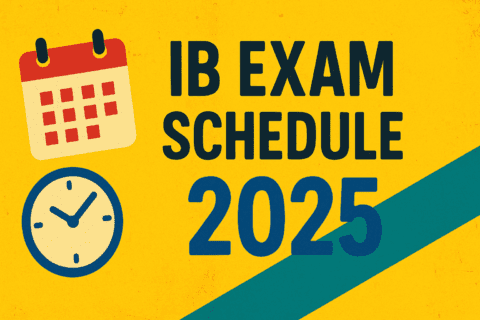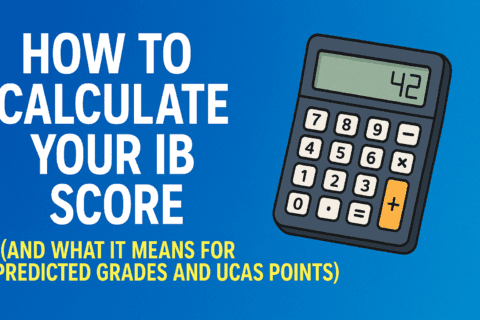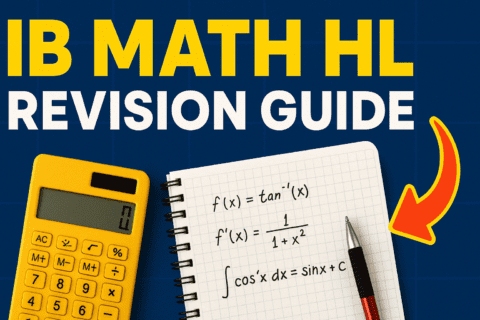IB vs A-Levels: A Complete Comparison for University Admissions
“IB or A-Levels? It’s not just about curriculum — it’s about where you want to go, and who you want to become.” – Charlotte Price, UCAS Advisor & College Counselor
🎯 Introduction: One Decision, Two Paths, Infinite Possibilities
If you’re a student (or a parent) mapping out the route to university, one crossroads always looms: IB or A-Levels?
This choice isn’t just about academic style — it can influence where you apply, how you’re assessed, and what doors open next. Whether you’re in the UK, the UAE, or anywhere with international schools, the debate is real.
So let’s dig into it: course structure, workload, UCAS points, university recognition — everything you need to make an informed, confident decision.
🧠 Curriculum Overview: What Are the IB and A-Levels?
What is the International Baccalaureate (IB)?
A two-year programme for students aged 16–19
Students take six subjects: 3 at Higher Level (HL), 3 at Standard Level (SL)
Includes:
Theory of Knowledge (TOK)
Extended Essay (EE)
CAS (Creativity, Activity, Service)
Graded out of 45 (6 subjects x 7 points + 3 bonus)
What are A-Levels?
Typically 3 to 4 subjects studied over 2 years
Offered by UK boards (AQA, Edexcel, OCR, etc.)
Graded A* to E
Modular or linear depending on school/board
AS-Level (optional) after Year 12
✅ TL;DR: IB = Breadth + critical thinking. A-Levels = Specialization + academic depth.
📊 UCAS Points: How Do IB and A-Levels Convert?
H2: UCAS Tariff Conversion Table (2024)
| IB Score | A-Level Equivalent | UCAS Points |
|---|---|---|
| 45 | AAA* | 56 x 3 = 168 |
| 42 | AAA | ~160 |
| 39 | A*AA | ~152 |
| 36 | AAA | 144 |
| 34 | AAB | 136 |
| 30 | BBB | 120 |
“A score of 39 in IB is often considered equivalent to A*AA in A-Levels.” – UCAS Tariff Guidelines
📌 Note: Top UK universities may have subject-specific requirements. A-Level Maths may be required for STEM, even if IB Maths HL is strong.
🎓 University Recognition: Which One Wins?
UK Universities on IB
UK universities widely respect the IB:
Oxford: Typical offer = 38–40 points with 6s and 7s in HLs
Cambridge: Requires 776 in HL + strong EE and TOK
LSE, UCL, King’s: 36–39 points for competitive courses
✅ Bonus: IB’s emphasis on writing, reflection, and global thinking appeals to humanities & interdisciplinary programmes.
UK Universities on A-Levels
The default system. Most UK admissions are built around A-Level scores.
Easy to compare
Most entry requirements published in A-Level format
Some programs (e.g., Medicine) require 3 A-Levels minimum
✅ Key Advantage: Clear subject alignment with course choices.
🌍 International Recognition: Where Does Each Lead?
| Region | IB Recognition | A-Level Recognition |
|---|---|---|
| USA & Canada | Accepted widely; up to 30 uni credits | Accepted; may require SAT/ACT |
| Europe | Popular for international admissions | Equally accepted in EU/UK & beyond |
| Australia & NZ | Recognized for ATAR equivalence | Recognized for direct university entry |
| Middle East/Asia | Growing preference for IB in int’l schools | A-Levels remain popular in private systems |
“Many US universities offer advanced standing or course credit for IB HL scores of 6 or 7.” – College Board
✅ Pro Tip: Always check individual university policies.
🧠 Academic Style: Which Suits Your Brain?
IB Might Suit You If:
You enjoy variety and balancing multiple subjects
You like coursework and continuous assessment
You want to build critical thinking across disciplines
You’re applying internationally
A-Levels Might Suit You If:
You have clear academic strengths and interests
You prefer focusing deeply on fewer subjects
You’re aiming for specific UK programs (e.g., Law, Medicine)
You thrive on exam-based evaluation
“IB stretched me more intellectually. A-Levels focused me.” – Serena, student who switched after Year 12
📚 Workload, Assessment & Support
| Feature | IB | A-Levels |
|---|---|---|
| Number of Subjects | 6 (3 HL, 3 SL) + core | 3–4 subjects |
| Coursework | EE + IA + CAS | Coursework varies by subject |
| Assessment Type | Mix of coursework, exams, presentations | Mainly end-of-year exams |
| Weekly Study Hours | 25–30+ hours | 15–25 hours |
| Skills Focus | Global outlook, writing, research | Subject mastery, analysis |
✅ Insight: IB’s workload is broader, while A-Level’s is deeper.
🧘♀️ Student Voices: Experience from Both Sides
Jake (Dubai – IB 41, now at Warwick)
“It was intense, but it helped me walk into uni with time management, research, and essay skills already polished.”
Alina (London – AAA in A-Levels, now at Edinburgh)
“A-Levels let me dive deep into Literature and History — exactly what I needed for my degree.”
🧭 Final Thoughts: Your Journey, Your Fit
There is no winner. Just alignment. The IB’s breadth prepares you for adaptability and global citizenship. A-Levels offer clarity, mastery, and proven academic progression.
If you’re applying to top universities, both are equally valid — as long as you excel.
“Don’t choose what sounds prestigious. Choose what feels purposeful.”
Still stuck? Think about your study habits, career interests, and application destinations.
❓ People Also Ask (FAQs):
Q1. Is IB harder than A-Levels?
A: IB is broader and includes more subjects, while A-Levels are more focused. Difficulty depends on your learning style.
Q2. How many UCAS points is IB worth?
A: A perfect IB score of 45 equals up to 168 UCAS points — comparable to AAA* in A-Levels.
Q3. Can I get into UK universities with IB?
A: Absolutely. UK universities like Oxford, Cambridge, LSE, and others accept IB and publish specific IB requirements.
Q4. Which is better for international students?
A: IB is often preferred for its global recognition, but A-Levels are well respected worldwide — especially in the UK and Commonwealth countries.
Still deciding? Browse curriculum guides and student tips on HeLovesMath.com. Your future deserves the right foundation. 🌍📚




